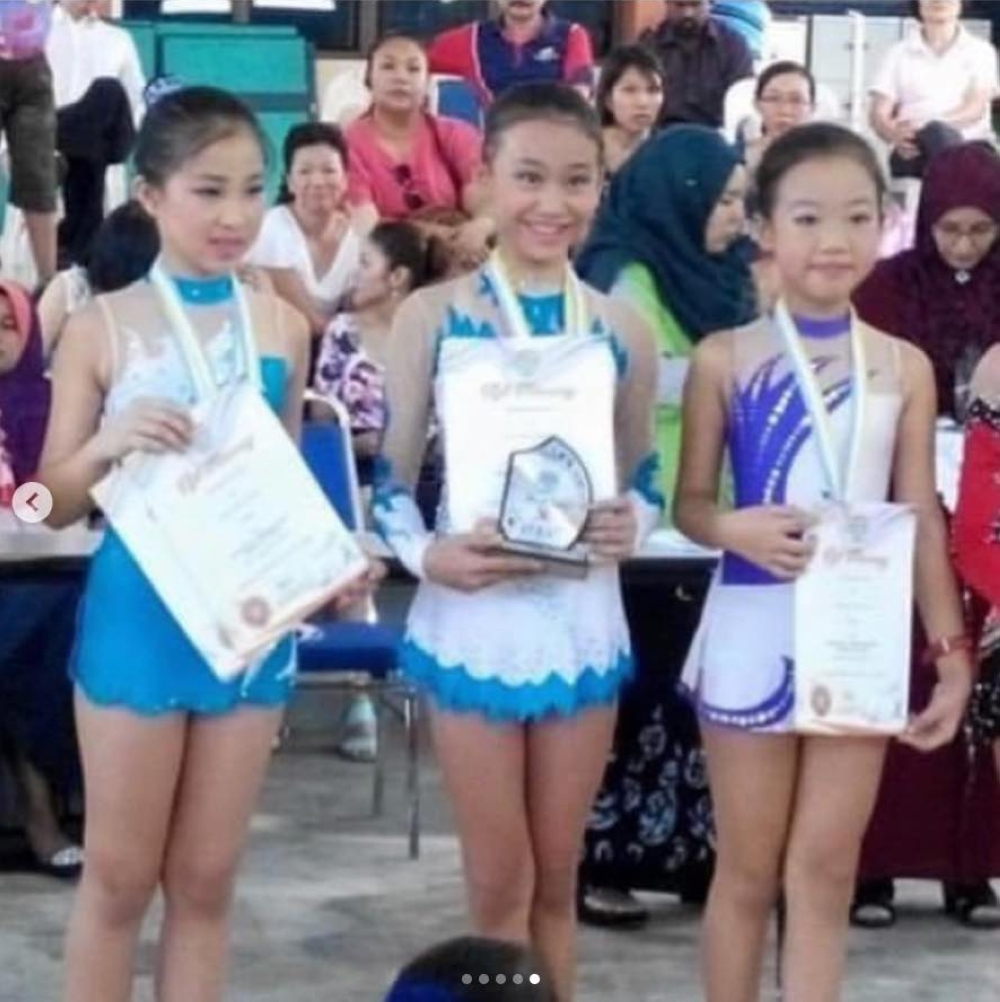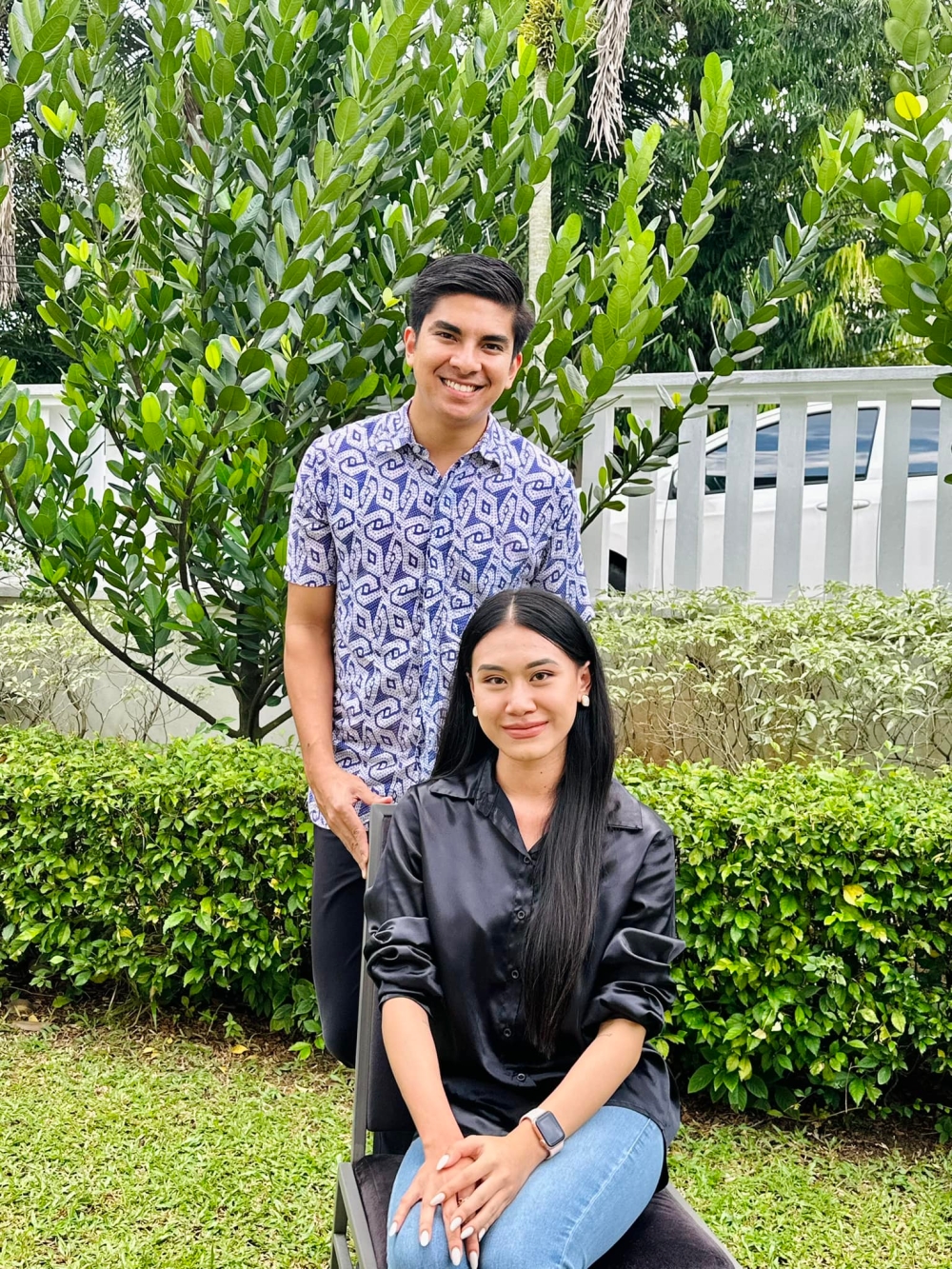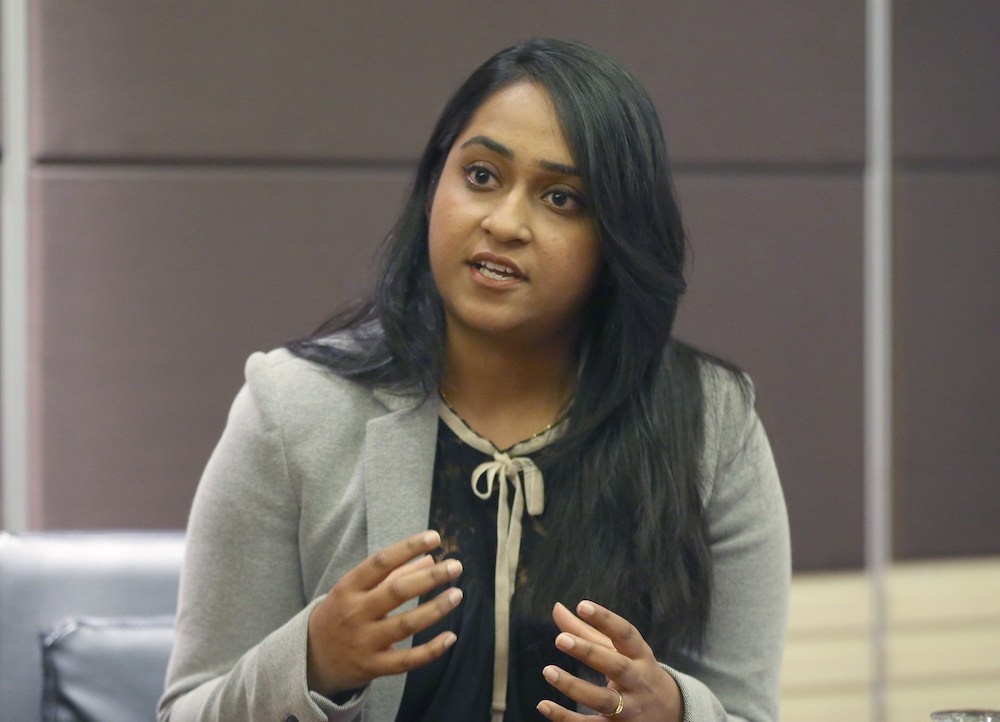KUALA LUMPUR, Sept 3 — Despite being born in Penang to a Malaysian father, 21-year-old Melissa is still unable to obtain a Malaysian identity card (IC) from the National Registration Department (NRD) and is seeking the Home Ministry’s help for her situation to be resolved.
Why was this Malaysia-born woman forced to live without an IC all these years, despite being registered as a Malaysian upon birth? What kind of struggles has she faced?
In response to Malay Mail’s enquiry, the woman who wished to be identified as “Melissa” shared the difficulties she faced without an IC, including being unable to continue studying and having to start working at the tender age of 14.
“I have never felt I am not a Malaysian. I am Malaysian. I was born and raised in Malaysia. My father is also a citizen. It is unfair for me to face a difficult situation due to the carelessness of several parties.
“I am just 21, I deserve to live normally like other people. I am already tired of the pressures of life without family support,” she told Malay Mail yesterday.
How did Melissa end up growing up without an IC? Here’s her story, based on her written responses, official documents, other documentary evidence and information provided to Malay Mail.
Born on January 3, 2002 at Srigim Medical Centre in Penang to a Malaysian father and an Indonesian mother, the NRD issued her with a birth certificate dated January 7, 2002 that stated “Warganegara” (Citizen). This meant she was recorded by the Malaysian authorities as a Malaysian citizen upon her birth.
While her parents married in July 2001 in Indonesia, they were only able to register their marriage in Malaysia in November 2002. This means Melissa was born before her parents’ marriage was registered in Malaysia, and this would later cause her to grow up without a Malaysian IC.
Melissa even had a Malaysian passport as a child, saying that she was unsure of the exact year she had this travelling document but said it was before the age of 12.
But she started running into problems later on, such as having to give up hopes of representing Penang for rhythmic gymnastics in the 18th Malaysia Games (Sukma) that was due to be held in 2016.
Sometime in 2013 or 2014, Melissa said she was told that she could “join and qualified for the Sukma Games in 2016 as it takes years to prepare and train for the games”.
“But the coach that handled me told me my chances are still very thin as I don’t hold proper documents, so I totally gave up on rhythmic gymnastics and stopped playing rhythmic gymnastics as I don’t see any hope of getting my IC done before Sukma,” she said.

With her mother having left before she was 12 due to a complicated family situation and with the father later also suffering from depression, Melissa also had a difficult time growing up as she said she was not well taken care of by the father and had to move about while in Penang.
Melissa said her father did attempt to apply for her Malaysian IC at the Penang NRD when she was 12 years’ old.
“But then the Penang NRD said I am not entitled for the IC due to late registration of the marriage and my father won’t take responsibility to settle the issue, plus with the mom no longer with us since I was a kid,” she said. According to Melissa, her father has been unable to track her mother until now and her mother is believed to have left Malaysia.
While she was able to complete her primary education in a primary school in George Town, Penang with UPSR scores of A and B for the two Bahasa Melayu papers, Melissa could not complete her studies at a secondary school in Penang.
“I went to the secondary school but could not continue to PT3 due not having IC. Only attended school until Form 2,” she said, adding that all the relevant documents relating to this had been lost.
“I started working by helping to sell nasi lemak in Penang at age 14, selling orchids, selling 20 sen ice-cream at the pasar malam, working in nail salon as a manicurist, all salary transactions were done in cash.
“After age 16, I moved to Kuala Lumpur to join the modelling and acting industry after getting to know someone influential in the entertainment industry who is my manager now,” she said, adding that her manager had helped initially with her accommodation and food until she was able to make a name for herself in the entertainment industry. She said she could only take up modelling as she did not have an IC and did not complete her studies.
Melissa had in 2020 won the Miss Grand KL beauty pageant along with the pageant’s Miss Popularity category and was also a finalist in the beauty pageant Dewi Remaja 2022, and has a list of multiple acting roles, including as the heroine in the telemovies Papa Jinak Singa and Girlfriend Aku Bipolar, with main supporting roles and supporting roles for telemovies, films and dramas produced by companies such as RTM, Astro and Metrowealth.

But being without a Malaysian IC has caused her to be deprived of many things, including missing out on job offers.
“I cannot open a bank account. Cannot continue my studies. Cannot go to government clinics/hospitals, forced to pay extra costs to go to private ones. I cannot get a driving licence. I cannot fly on planes.
“I was once offered to work in Sarawak but because I had no IC, I could not accept that offer. For a new actress, it’s quite difficult to get offers to act, but I was forced to let go of several offers due to not having IC. I faced difficulties in finding work,” she told Malay Mail.
In her bid to apply for a Malaysian IC, Melissa said she went to the NRD several times in 2021, but was told to bring her birth certificate.
“But I don’t have it with me since my dad lost it,” she said, adding that all original documents including her birth certificate had been lost.
Melissa was able to get her father to make a police report in March 2021 to state that several documents including her birth certificate had been lost. In the police report, the father said he was making the report for NRD’s and the Immigration Department’s reference in order to obtain replacements for the missing documents.
Melissa said the missing documents were not replaced as those required her father to obtain them, adding that she only managed to obtain her original birth certificate from the NRD.
In order to reprint her birth certificate, the NRD said she would have to bring both her parents to its office.
After explaining that her mother has left the family years ago and her father was frequently unavailable, the NRD wanted her to bring at least her father, she said.
“So, I brought my dad to Putrajaya NRD in 2022 to print out my original birth certificate,” she said, with the April 14, 2022 reprinted copy of the birth certificate showing that she was registered as being “Warganegara” or citizen of Malaysia. This was one of the documents shown to Malay Mail.
After reprinting her birth certificate, Melissa said she was then asked by the NRD to get a lawyer to bring her case to court.
She then tried to find a pro bono lawyer or a lawyer to represent her without fees since she does not have much money to afford one, but said those lawyers turned her down.
“Then I told NRD about this and they asked me to get help from any ministers,” she said, adding that she had asked NRD to issue a letter regarding her problems relating to her IC and citizenship but was told they were unable to help with that.
Without any letter from the NRD regarding her status, Melissa said she can only rely on her birth certificate. According to Melissa, she had been stopped at road blocks several times but could only provide her birth certificate and had to explain to the authorities about her IC problems.
Never thought of taking on Indonesian citizenship, dreams of education
Based on the Malaysian government’s interpretation of the Federal Constitution in multiple citizenship cases throughout the years, the government would typically consider children born in Malaysia to a Malaysian father as non-citizens, if the Malaysian father’s marriage with the non-Malaysian mother was not registered before the child was born.
The government had in court typically argued that the child should take on the non-Malaysian mother’s citizenship since the child is born out of wedlock or when the parents were not legally married yet, and used this reason to deny Malaysian citizenship to the child.
But the foreigner mother in such cases were often untraceable after leaving the family, while the child who had grown up in Malaysia would not have any ties to the mother’s country.
Such children would usually be stateless as they are not citizens of any country in the world, since the Malaysia government does not recognise them as citizens and they also did not take on the mother’s nationality.
Asked if she has tried to check and get confirmation from the Indonesian embassy that she does not have Indonesian citizenship, Melissa said she has never thought of becoming an Indonesian.
“I am only 21 years old. Living alone without parents’ support, quite difficult for me to do everything. Therefore, I have never thought of obtaining Indonesian citizenship as I hold firmly to the citizenship that has been given to me in my birth certificate by the Penang NRD. Therefore, I want my right that had been given at my birth,” she told Malay Mail.
Currently still working as a model and actress, Melissa is able to speak nine languages and dialects, namely Malay, English, Mandarin, Cantonese, Hokkien, Thai, Bahasa Indonesia, Javanese and Sundanese.
She still has unrealised dreams, having registered for the US standardised exam SAT but never finished it as it was “too costly” and she had decided to move to Kuala Lumpur to look for work. Similarly, she did not complete her studies at Taylor’s University.
“I just want an education without high costs. I wish for a bright future with education,” she said.
Asked about her hopes once she is issued the blue-coloured Malaysian IC or MyKad, she said: “Once I get the ‘Kad Biru’ (blue card), I wish to sit for SPM and further my studies. I wish to acquire valid education in Malaysia. That is one of my dreams, to attain higher education.”
Melissa said she has written a letter to the Home Ministry to ask for help, which she gave to Muar MP Syed Saddiq Abdul Rahman to help submit the letter. Her case had become viral after Syed Saddiq highlighted it on his Facebook, Instagram and Twitter accounts on Friday night.

In a statement yesterday afternoon, the NRD said it has contacted Melissa to obtain the facts about her case and said her case was being looked at.
Maalini Ramalo, director of social protection at the non-government organisation Development of Human Resources for Rural Areas (DHRRA) Malaysia which is assisting Melissa, said the Penang-born woman is truly stateless.
Maalini explained that Malaysia’s practise of a gender-discriminatory nationality law — where Malaysian fathers cannot pass on citizenship to their Malaysia-born child without a legal marriage, unlike Malaysian mothers — had left Melissa without automatic access to Malaysian citizenship.
Maalini said Melissa was also unable to apply for Malaysian citizenship under the Federal Constitution’s Article 15A in the past due to her family complications. Article 15A gives the Malaysian government the powers to register anyone below the age of 21 as a citizen in “special circumstances”.
“Now that she is above 21 years, she no longer qualifies for this provision,” Maalini told Malay Mail.

At the same time, Melissa is also not an Indonesian, as Indonesian laws at the time of Melissa’s birth did not allow Indonesian women to automatically pass on their citizenship to their children.
“Melissa could not access Indonesian citizenship as her mother abandoned their family when she was young and remains untraceable. In addition to that, based on the law of Republic of Indonesia Number 12 year 2006, Melissa is not a registered citizen of Indonesia. As prior to year 2006, Indonesia citizen women could not pass automatic citizenship to their children,” Maalini said.
“Based on both the scenarios, Melissa is truly stateless with no other possible citizenship access. Her strongest attachment remains her Malaysian father and country of her birth — Malaysia. Malaysia is her only home. #HanyaMalaysiaTanahAirku,” Maalini said.
According to Maalini, stateless persons such as Melissa would have no pathway under the Federal Constitution to seek to be recognised as Malaysians, once they hit the age limit of 21.
Even for those aged 21 and above who may resort to applying for Malaysian citizenship by naturalisation under the Federal Constitution’s Article 19, Maalini said it was understood that they would have to first obtain an approval letter from the Home Ministry for NRD to accept the naturalisation application form.
Maalini said the government could adopt an “immediate initiative” to ease such citizenship applications: “The government should come out with a standard operating procedure that allows stateless young adults aged 21 and above to apply for citizenship without requiring special approval from the Home Ministry as a supporting letter to the NRD.”



















